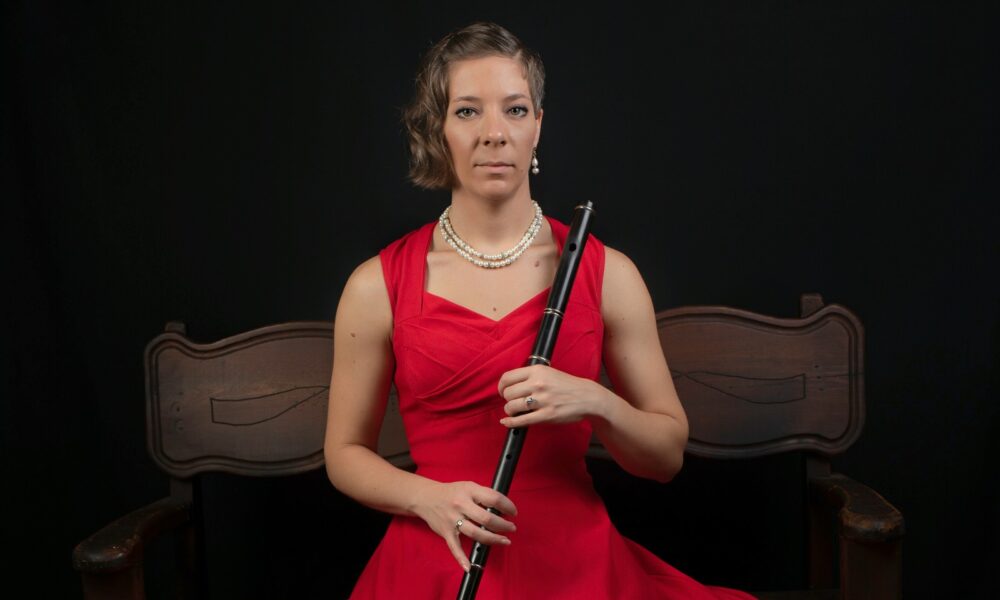

Today we’d like to introduce you to Stephanie Dawn Payne.
Hi Stephanie, so excited to have you with us today. What can you tell us about your story?
I don’t remember a time when I didn’t want to play the flute. I remember watching a Disney band on RC when I was about five. I pointed at the flutes and said, “That’s what I’m going to play!” Unfortunately, I had to wait until I was eight to start playing because we had to wait until my hands grew large enough to hold the instrument.
So then I started taking flute lessons from one of the dearest women on the planet, Norma Anderson. She was the piccoloist for the Chattanooga Symphony Orchestra for a very long time, and my mom would drive me up to her house every week. She had chows, and everyone joked for a while that I only went to my lessons so I could pet the dogs. But I took lessons from her for almost ten years before I finished high school in a full-time residential dual-enrollment program at the University of West Georgia. During those same ten years, I did all the things middle and high school musicians do: District and All-state band, youth orchestra, woodwind quintet, flute choir, concert band, and marching band.
Once I graduated high school, I went to the Schwob School of Music at Columbus State University where I double majored in music performance and business. Those were four very difficult years managing both majors that were housed in two different campuses on opposite ends of town. I learned A LOT about time management and discipline to make sure I kept up with my practicing, classes, homework, rehearsals, performances, and work with the music fraternity SAI chapter I was a charter member for. I studied with the inimitable Dr. Andrée Martin, who has changed the lives of hundreds of young musicians. She is a brilliant pedagogue and one of the kindest people you’ll ever meet. I also did all the normal music major things like summer music festivals, masterclasses, and competitions one does. I’ve played and met some really cool people like Tara O’Connor, Carol Wincenc, and Emmanuel Pahud. I also almost got stuck in French Canada one summer because I missed my two-hour bus ride back to the airport and don’t speak French.
My story is pretty typical for musicians up to this point. I was doing the music major thing and planning on just going on to grad school for performance, but the summer before my senior year at CSU, I had a realization. Graduate degrees in music don’t concretely qualify you for anything more than a high school diploma does. If you can play, you get the job. So it didn’t make sense to me to spend tens of thousands of dollars for something that wouldn’t necessarily make a meaningful difference in my future earning level because musicians don’t get paid based on what degrees they have, either. College students earn the same per service rate and musicians with terminal degrees in orchestras.
It was at that point I decided to combine my two undergraduate degrees and do a master’s in arts administration. I specifically only targeted schools that included an artistic requirement in the curriculum because I wanted to make sure I kept taking lessons and being an active musician. Performing has and always will be a love and a passion for me. I ended up getting a graduate assistantship at FSU with their summer music camp, which is the largest summer music camp program in the country. I had a fantastic two years there where I played in flute choir, Irish ensemble, pit orchestras, and took lessons while learning about how the business side of arts nonprofits work in a very hands-on kind of way. I interned with COCA, one of the largest local arts agencies in the country, the Columbus Symphony Orchestra, and the Tallahassee Bach Parley. I knew I wanted to move back to Columbus, so it was serendipitous when Dottie Brown, the former Executive Director of the youth orchestra here, emailed me and invited me to apply for her position as she was retiring. I ended up getting the job and working with the Director of FSU’s Summer String Camp, Jim Palmer, which was a funny coincidence. We’d both worked for camps, and I’d managed the admin side of his camp for two years, but we’d never met before my second interview.
I started as the youngest Executive Director in Columbus right out of graduate school and one of only a few females. I was hired to professionalize the position into a true Executive Director role instead of a more administrative position as well as really ramp up the organization’s fundraising efforts. I’m really proud to say I did both of those things in the six and a half years I stewarded that organization. Bill Bullock, a former Executive Director of the local performing arts center that houses the youth orchestra, put it very kindly when he told me that I transformed the organization from a struggling grassroots organization to a thriving, well-funded, and highly-respected nonprofit in town. Jim was the best Artistic Director you could ask for, and we were able to do some really cool things. I started the guest artist series where we brought in world-renowned guest artists every other year for two-day residencies and performances and the chamber music recital series. We started the Whitewater Orchestra Festival and then expanded it to the Whitewater Music Festival. It was a bit surreal to be hanging out with Time for Three and Mark Wood, the guy who invented the electric violin. By the time I left, I had managed to increase the endowment by 637%, the operational budget by 37%, and the operation reserves by 216%. Since I’ve left, I’m now the Development Director for a much larger youth-serving nonprofit in town where I’m responsible for raising just over $1 million/year. That’s been a big shift. I’ve learned a lot in a very short period of time but have also broken three fundraising records in just seven months, so I’ve been fortunate so far.
I have also maintained an active performing career as a freelance musician. I deepened my skills as a traditional Irish flutes and whistles player, winning a couple of awards along the way. Now I’ve moved back into the orchestral world a bit as the Second Flutist for the Albany Symphony, and I’ve developed a unique curriculum to teach classically-trained flutists how to authentically play traditional Irish music. Trad players use similar language when they talk about it, but the meanings of words are frequently very different from how classical musicians use them. So I’ve spent years translating that and breaking the style down in an easily-understood way for them. I’ve presented my work at several conferences and done a few masterclasses, so I’m excited to see how I can continue to help flutists access this rich and beautiful music tradition. I’m always happy to talk to anyone that’s interested in working with me personally or with your studio of all levels. I can tailor to any ability level, music theory knowledge, and timeframe desired.
Surprisingly, the two careers actually support and feed one another. I meet all kinds of people at gigs I wouldn’t have access to otherwise that I can then get to know and introduce them to my philanthropic work, and I get gigs when I’m in meetings with community meetings I would never meet as a straight musician.
I’ve had a bit of a winding road, but I think everyone does. I’ve kept myself open to new ideas, opportunities, and possibilities, and then I’ve not been afraid to take some big leaps when an opportunity comes along. I also think it’s important to say that there are as many ways to structure a musical career as there are musicians in this world. I’ve chosen to maintain two careers: one as a nonprofit executive and one as a musician that then specializes in both classical and traditional Irish music. It definitely keeps me busy, but it’s been fun.
We all face challenges, but looking back would you describe it as a relatively smooth road?
I think if anyone tells you they’ve had a smooth road, they’re lying. I think it’s in life’s struggles that you learn the most about yourself. I think the most consistent struggle in my life has been time management. I do a lot, and I’m not someone who does things in half measures. On top of my two careers, I’m on the board of directors for one of the largest Rotary Clubs in the world and the Rainey-McCullers School of the Arts as well as being on the Advisory Council for Phoenix Irish Arts in Atlanta, which is the group that hosts IrishFest Atlanta. So I have to stay incredibly organized, focused and prioritize my tasks impeccably all the time.
Can you tell our readers more about what you do and what you think sets you apart from others?
I am most proud of my work as an Irish musician. Trad music is such a rich, beautiful style with centuries of tradition. It’s a whole world unto itself, and I’ve really loved learning the Irish flute and whistles. One of the most rewarding experiences is when I’ve presented at some flute conventions and conferences and have seen the attendees’ eyes light up with understanding as I introduce them to Irish ornamentation in classical vernacular. That reaction is why I’ve spent years developing my curriculum, so I can open the world of trad Irish music to a whole new group of musicians and help keep the style alive and thriving.
The crisis has affected us all in different ways. How has it affected you and any important lessons or epiphanies you can share with us?
I learned how important perseverance and persistence are. I was still at the youth orchestra in 2020, and we shut down in March like everyone else. However, Jim and I knew we couldn’t just throw in the towel till everything blew over. We pushed and worked really hard, and not only did we, as the youth orchestra, host the first performing arts event in town after the lockdowns, we started in-person symphony orchestra rehearsals back for the kids on October 5, 2020. We had a free outdoor Christmas concert on December 5, 2020, and hundreds of people came out (masked and socially distanced, it was a big space), and I had someone come up to me and tell me that the concert really helped brighten their mood and move them out of a dark place. That was a really hard year, but it was also one of the most rewarding because of how much our work to keep the orchestra going meant to the kids and their families.
Contact Info:
- Instagram: @stephaniedawnmusic
- Facebook: https://www.facebook.com/stephanie.dawn.musician
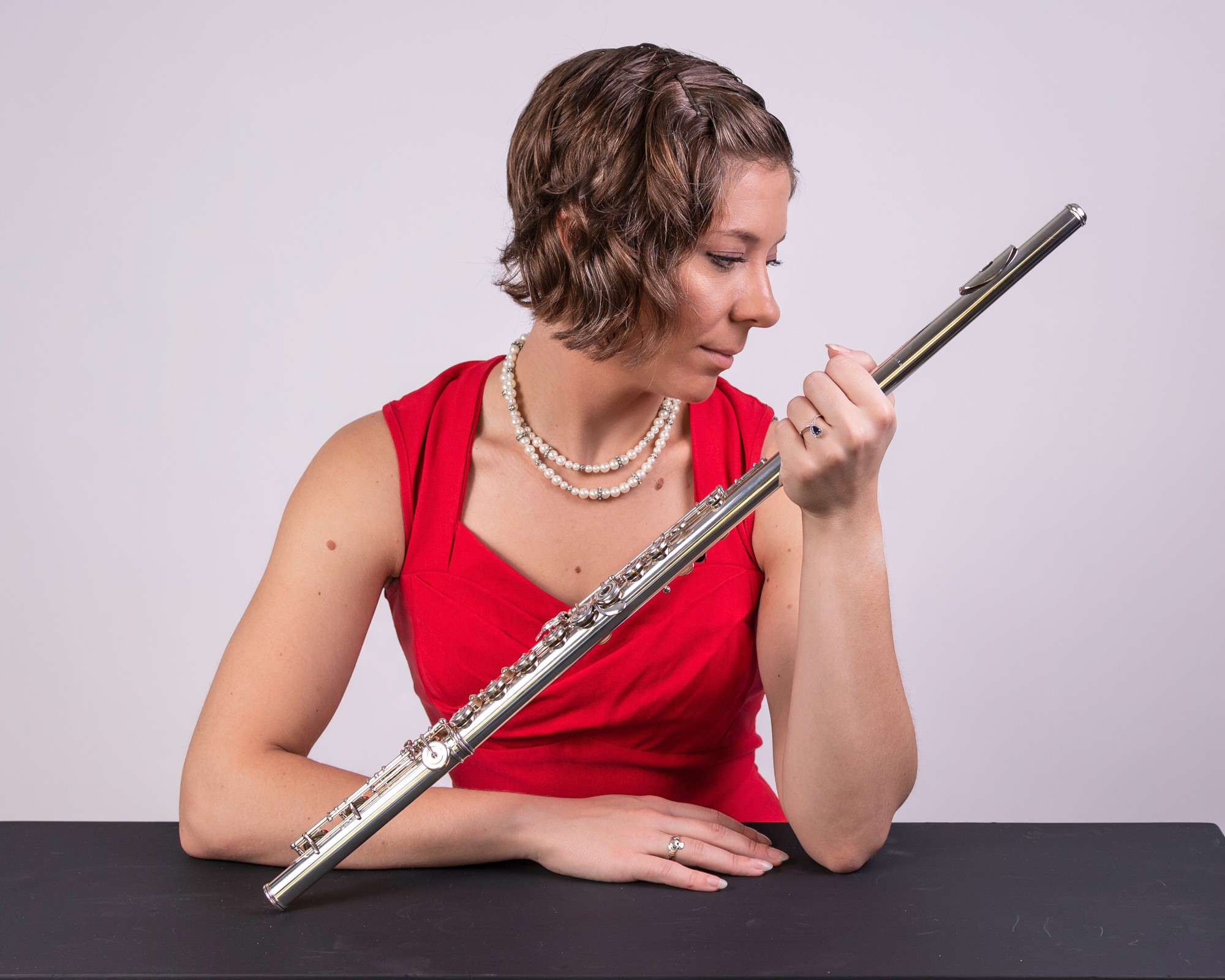
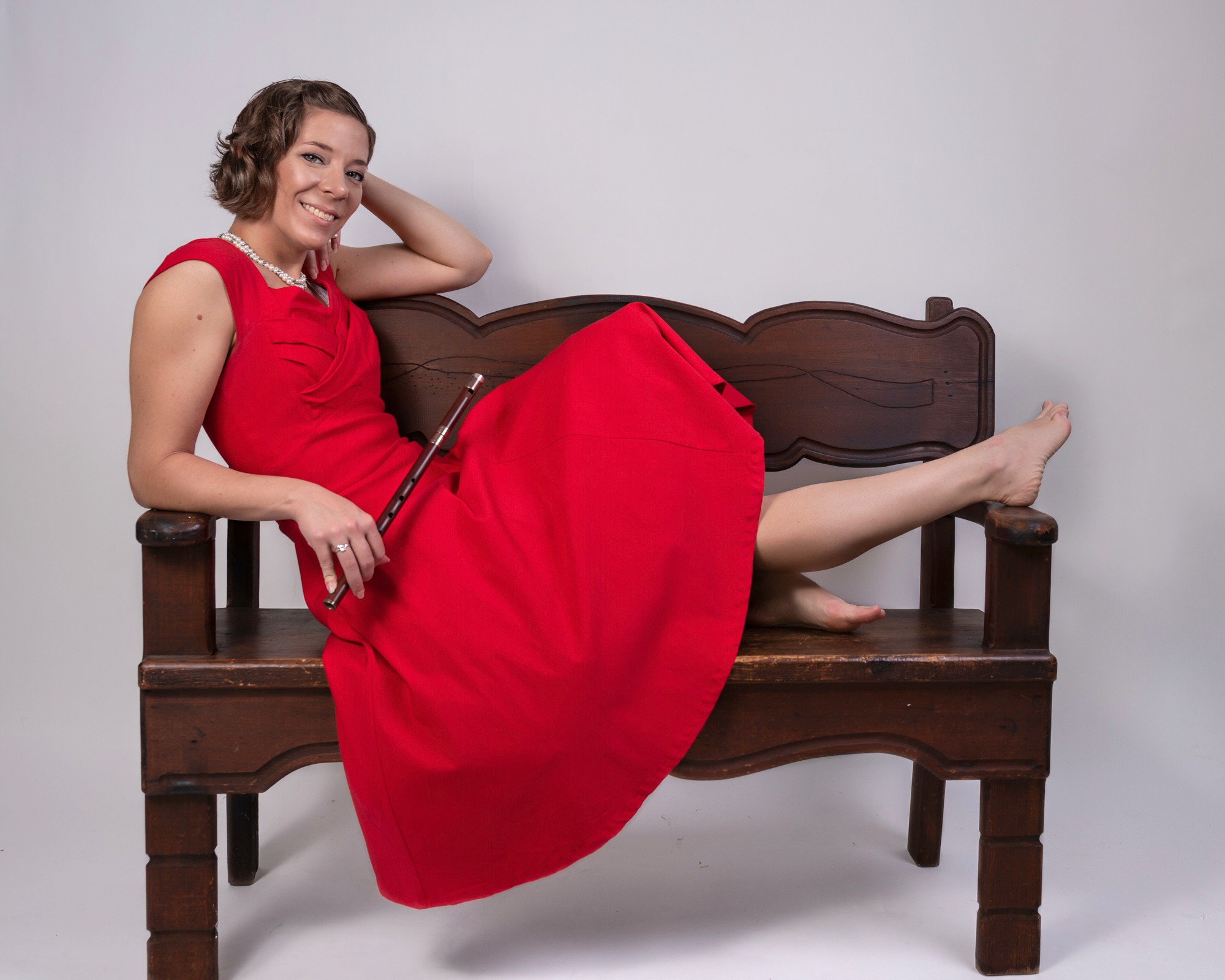
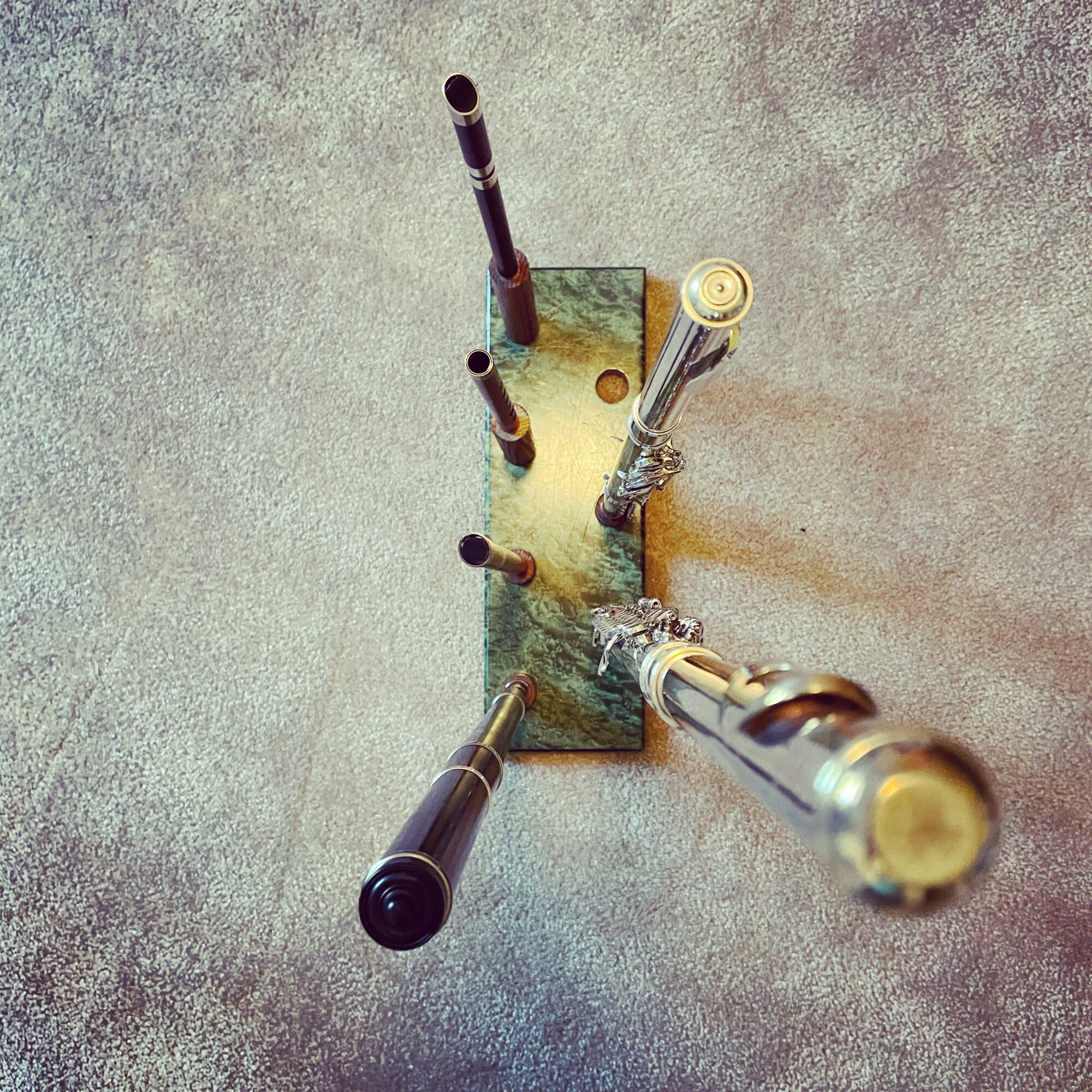
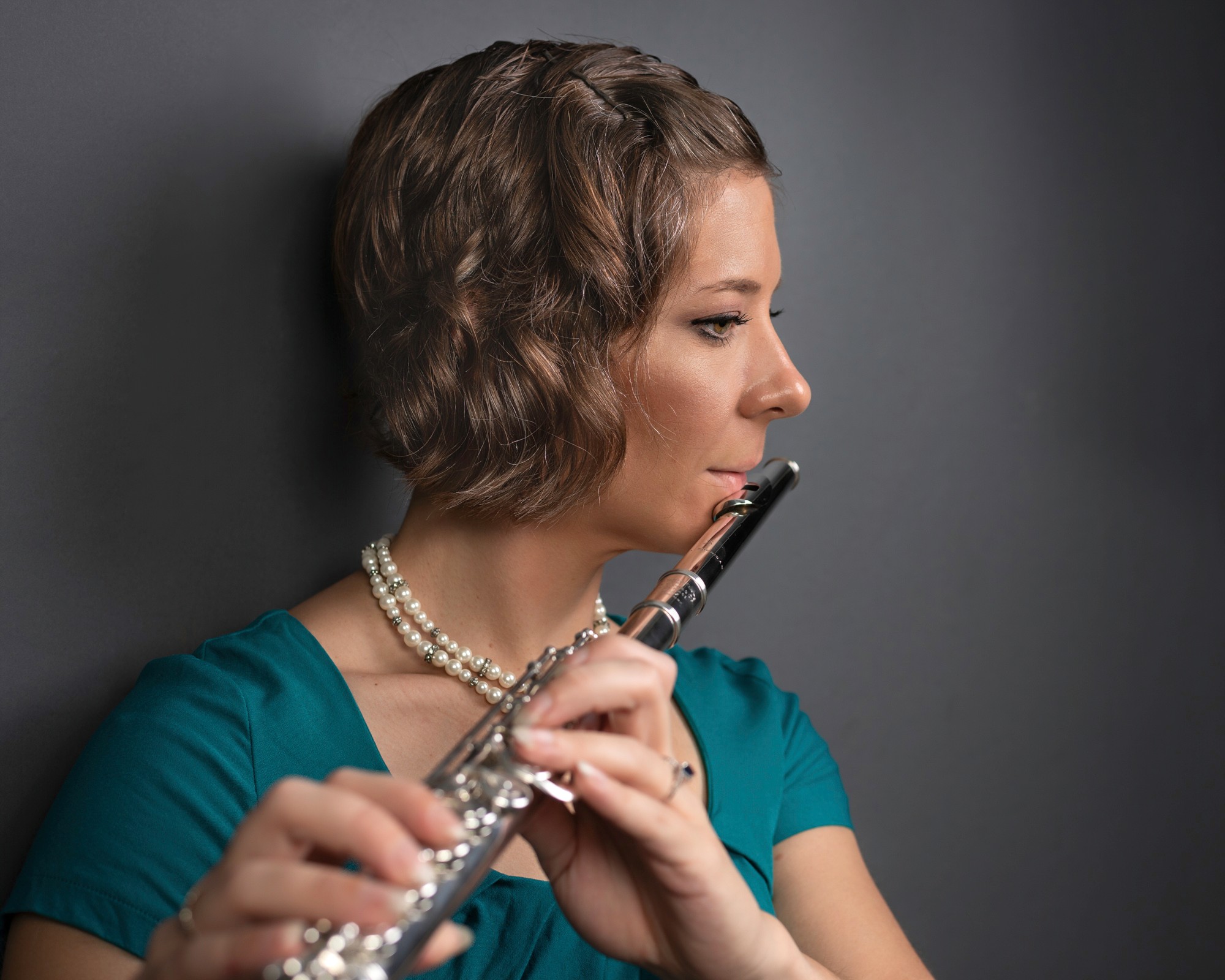
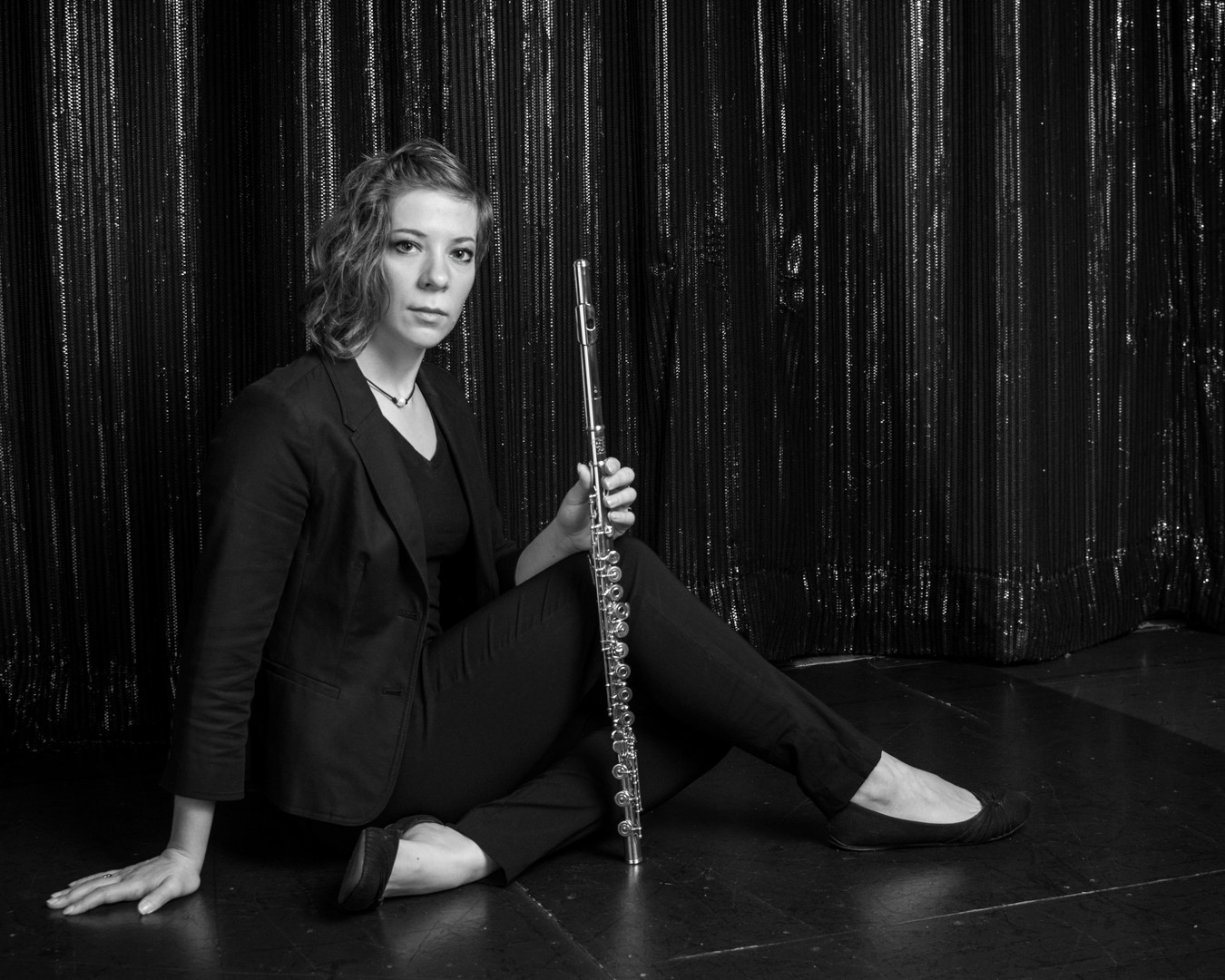
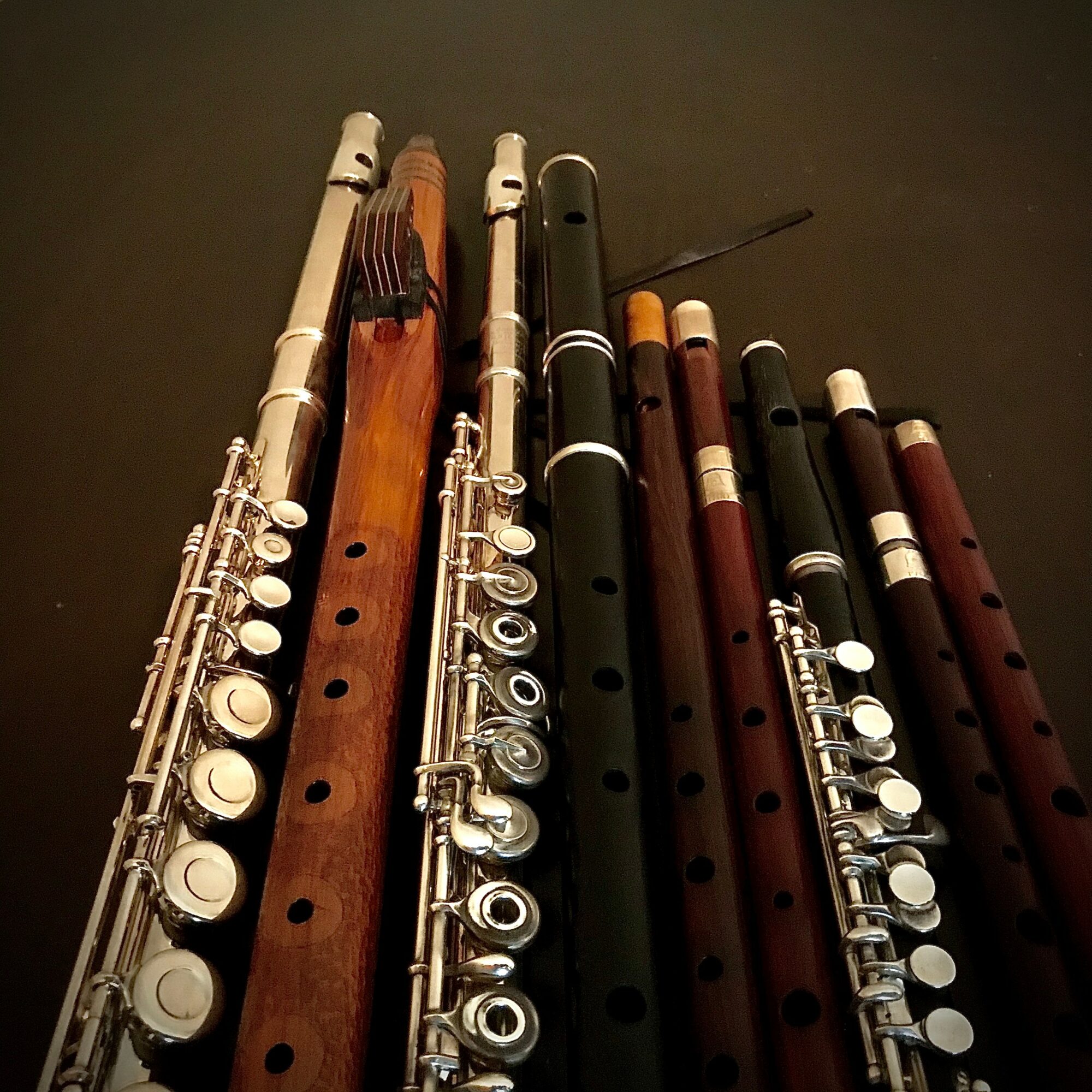 Image Credits
Image Credits
For all of the shots with me in them, please give photo credit to Tom Scott.













